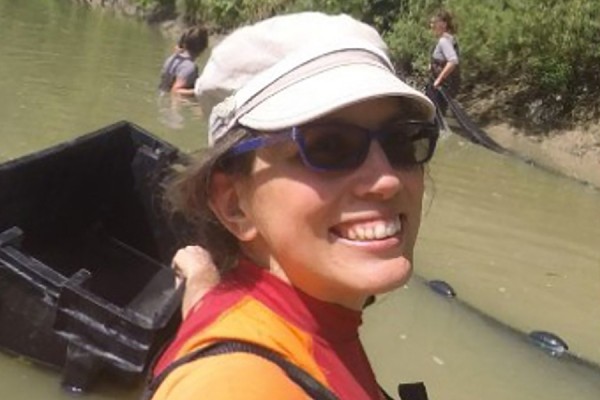 Christina Semeniuk is one of 28 UWindsor researchers awarded nearly $4.4 million in federal funding to advance discoveries in science and engineering.
Christina Semeniuk is one of 28 UWindsor researchers awarded nearly $4.4 million in federal funding to advance discoveries in science and engineering.
Twenty-eight UWindsor researchers have been awarded nearly $4.4 million in federal funding to advance discoveries in science and engineering.
The research involves such diverse topics as auditory processing in the human brain, algal blooms in the Great Lakes, self-driving vehicles, adaptations in salmon, the treatment of industrial wastewater, and the effect of orbital debris on robotic satellites, among others.
Six of the successful grant applications were submitted by early career researchers, all in the first three years of their first academic appointments. In addition to grants ranging from $24,000 to $30,000 yearly, they each received a one-time $12,500 “launch supplement” to give their research an initial jump start.
One researcher — Christina Semeniuk of the Great Lakes Institute for Environmental Research — received a total of $60,000 for her research on the ability of species to cope with environmental change. Dr. Semeniuk’s award included a $20,000 supplemental grant for advancing science in Canada’s north.
Almost all the grants are renewable for each of the next five years.
“The Discovery Grants provide the fundamental support to researchers,” said K.W. Michael Siu, UWindsor’s vice-president, research and innovation. “I am delighted by the successes of our colleagues and would like to congratulate them, as well as to thank the federal government and NSERC in supporting discovery sciences generously.”
The awards are part of $588 million in funding under the Natural Science and Engineering Research Council of Canada’s Discovery Grants program announced last week by federal Science and Sport Minister Kirsty Duncan. More than 4,850 researchers across the country received funding under the program.
“The funding announced today demonstrates our strong and enduring commitment to science and researchers,” Duncan said. “Since taking office, our government has worked hard to bring science and research back to their rightful place and this historic investment in the discoveries of tomorrow is just one example of how we are achieving this goal.”
Digvir Jayas, interim president of NSERC, said the funding provides a firm foundation for exceptional researchers at every stage in their careers: “These students, postdoctoral fellows, and professors make up the backbone of Canada’s science and engineering research enterprise.”
─ Sarah Sacheli
